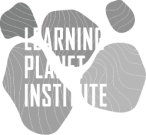meet our Consortium

APRE - Agenzia per la Promozione della Ricerca Europea
LOBA - Customer Experience Design

AU - Aarhus University

ESF - European Science Foundation

ZSI - Zentrum für Soziale Innovation

LPI - Learning Planet Institute

SISSA - Scuola Internazionale Superiore di Studi Avanzati


OpenAIRE

EARMA - European Association of Research Managers of Administrators

DANS - Data Archiving and Networked Services

UniSR - Universtà Vita-Salute San Raffaele

SciLINK - SciLink Foundation

RBI - Ruđer Bošković Institute

UMinho - Universidade do Minho

APRE - Agenzia per la Promozione della Ricerca Europea
APRE is a no-profit research organization created in 1989 as a joint initiative of the Italian Ministry of Education, University and Research (MIUR) and of some public and private bodies, to meet the growing demand for information on European research programmes. First reality of its kind, APRE’ mission is to support the scientific and the industrial communities along the path to Europe and beyond, by providing information, training and assistance activities on the Framework Programmes for Research and Innovation of the European Commission. APRE is at the heart of a network of almost 130 members from the academia to private sector, including: Public and Private Research centres, Universities, Scientific Parks, Public Administrations, Trade associations, Finance, Chambers of Commerce, Technological Districts, enterprises: http://www.apre.it/en/what-isapre/ apre-members/ APRE can rely on this network to enhance and foster exchange of experiences and best practices and to ensure a sound advocacy for its members at national and European level. In order to strengthen the networking potential and raise the awareness on European research at local, APRE has established a network of 19 Regional Help Desks throughout Italy. In addition, APRE Liaison Office in Brussels acts as a strategic hub intended to promote and involve more effectively its Members straight into the hearth of EU Research and Innovation policies and programmes.
APRE is coordinator of the GIURI Group (Informal Group of the Italian Offices in Brussels), an informal platform of more than 50 Italian Brusselsbased representation offices representing research organizations, business organizations, national/regional institutional bodies and financial intermediaries, actively dealing with EU R&I policies. APRE is member of the Enterprise Europe Network (more than 600 member organisations involved) helping SMEs to make the most of the European marketplace. APRE counts on more than 65.000 users registered in its database including both public and private research centres, more than 50 universities, industries (10.000 of which related to SMEs), industrial associations, chambers of commerce, science parks and civil society organisations. APRE Social media networks with a constituency of more than 7.000 users: Twitter: 965 followers; Facebook: 3500 followers; Linkedin: 2785 followers. APRE has a long-lasting experience in the EC Framework Programmes, which started with the Third Framework Programme (FP3). Since then and during its almost 30 years of activities APRE has been participating to more than 150 projects co-financed by the European Commission (DG Research, DG Education, DG HOME, DG GROWTH, DG CONNECT and DG Enterprise), mainly for supporting and coordinating research in Europe and beyond through policy recommendations, organization of events and performing trainings. In the Seventh Framework Programme and in Horizon 2020, APRE has been appointed, by the Italian Ministry of Research, host organization of the Italian National Contact Points for all the themes and sectors. APRE is partner or coordinator in all the 17 NCPs Network projects in both FP7 and H2020. Since 2001 APRE is compliant with ISO EN 9001:2000 Quality Certification for the management of the project, training and promotion activities.
LOBA - Customer Experience Design
LOBA is a business and marketing consulting company based in Portugal and operating throughout Europe and Africa. Established in 2000, Globaz has branches in 3 countries with more than 30 qualified staff members, including senior executives, consultants and researchers. Globaz delivers consultancy and management services and is specialist in implementing innovation strategies in organisations (innovation processes, organisational development, technology and innovation audits), dissemination activities, technology watch, project management (planning, organising, directing, controlling) and project financing. LOBA main enabler is the ability to combine their expertise with critique and conceptual repertoire, based on an extensive visual culture, social and psychological perspectives. They are a creative driver that aims at a communicational objective.
The services offered by Globaz are divided into seven main areas: design (visual identity, graphic supports, editorial design, product design), multimedia (multimedia applications, multimedia management system, video, iPaper); websites (institutional websites, portals , e-commerce sites Mobile), web marketing (email marketing, search engine marketing, social web marketing, search engine optimization, website management); web applications (intranet and extranet, content management system, web hosting, web domains) and two secondary areas: consulting (marketing plans, communication plan, branding and naming, design communication, content); events (trade show management, corporate events, team building). Globaz is geographically established in a region where the industrial tissue its very focused in textiles, shoes and moulding, keeping with these sectors and trustable and sustainable relationship.

AU - Aarhus University
AU is consistently ranked as one of the world’s top universities. It was ranked number 69 in the latest Shanghai ranking and is among the world’s 100 best universities in 18 out of 48 subjects in the latest QS World University Rankings by Subject. In fact, according to the 2020 Universitas 21 Ranking of National Higher Education Systems, Denmark ranks number three in the world based on performance in three areas: resources, environment, connectivity and output.
At AU, classes are taught by active researchers in an informal, stimulating atmosphere. All degree programmes are deeply rooted in the latest research and are subject to a rigorous quality assurance programme to ensure they meet the highest global quality standards.

ESF - European Science Foundation
The European Science Foundation (ESF) is a non-governmental, internationally-oriented, non-profit association established in France in 1974. ESF is committed to promoting the highest quality science in Europe to drive progress in research and innovation. We work closely with our members and partners, sharing our expertise and offering solution-orientated scientific support aimed at increasing the quality and effectiveness of science and science-related activities in Europe.
We partner with diverse institutions by leading successful projects, facilitating informed decision-making through a broad range of science support partnerships: Research Project Grant Evaluation, the coordination of European projects, funding programmes and the hosting scientific platforms.

ZSI - Zentrum für Soziale Innovation
ZSI is a private non-profit trans-disciplinary social science research institute, established 1990. It is among Austria’s largest social science organisations and Austria’s most successful social scientific research institute in FP7. ZSI’s key activities are clustered in three dedicated units: (1) Work and Equal Opportunities, (2) Research Policy and Development, and (3) Technology and Knowledge. All departments are involved in networking and dialogue activities, bringing stakeholders together to enable and enhance social innovation. Also Responsible Research and Innovation is a cross-cutting issue being addressed in several ZSI projects (e.g. RRI Tools, ICT-RRI Forum and SMART-Map). ZSI frequently coordinates both research and innovation actions (RIA) as well as coordination and support actions (CSA). ZSI is engaged in the Responsible Research and Innovation (RRI) topic via the FP7/H2020 projects RRI Tools (among other tasks also leading the evaluation), SMART-Map, NanOpinion, and RRI-ICT Forum and in bio-economy in BLOOM. ZSI works in knowledge generation, knowledge implementation and knowledge diffusion, i.e. in research and application, which includes network coordination, consulting as well as education and evaluation. ZSI team members are engaged in a wide variety of innovative, high-impact educational experiences and evaluation methods as ZSI researchers teach at universities, universities of applied sciences and in other educational organisations, give academic and applied presentations with a very high international outreach and they (co-) organise at annual average more than 70 professional events during the last five years. In general the ZSI offers analyses and concepts for promoting and implementing social innovation in its thematically focused areas from a transdisciplinary perspective. In a number of open science, RRI and technology assessment projects (lately, for instance, Smartmap or RRI Tools), ZSI has successfully developed and employed participatory techniques and models of stakeholder inclusion. ZSI has been at the forefront of European-level discussions on open and citizen science (ZSI experts co-authored the White Paper on Citizen Science in Europe). Our experts have a strong focus on research at the interface between technology and users/society: how to develop technology in order to be of use for diverse groups (acceptance, usability, design for all approach, participative methods, empowerment and creation of ownership); as well as to understand the implications of certain technologies (e.g. via constructive technology assessment approaches).

LPI - Learning Planet Institute
Since 2006, the Learning Planet Institute has been dedicated to reinventing learning for all ages (lifelong learning) through collective intelligence in order to build sustainable & inclusive learning societies able to rise to the complex challenges we face.
The Institute’s mission is to explore, research and share new ways of learning and cooperating in order to respond to the needs of the youth and the planet. By encouraging and disseminating a culture, methods and tools for empowerment, it transforms organisations. Ultimately, it leads communities and supports “Learning Planetizens” to take care of themselves, others and the planet.
To achieve its goals, the Learning Planet Institute creates research and educational programmes based on interdisciplinarity, diversity and initiative.
This relies on the synergies between its activities: R&D, Education, Digital Ecosystems, International Alliance and Transformation of Organisations.

SISSA - Scuola Internazionale Superiore di Studi Avanzati
SISSA – Scuola Internazionale Superiore di Studi Avanzati – was founded in 1978 and is a scientific center of excellence within the national and international academic scene. Located in Italy, in the city of Trieste, it features about 70 professors, 130 researchers, 300 PhD students and 120 technical administrative staff. Situated on the scenic Karst upland, the School is surrounded by a 25 acre park, and offers a stunning view of the Gulf of Trieste.
SISSA’s activities focus on three main areas: Physics, Neuroscience and Mathematics. Moreover, the Interdisciplinary Laboratory for Advanced Studies works at the interface between science, humanities and the public.” Vorremmo aggiungere “Since thirty years, it organises the Master’s course in Science Communication “Franco Prattico”.
All the scientific work carried out by SISSA researchers is published regularly in leading international journals with a high impact factor, and frequently in the most prestigious scientific journals such as Nature and Science. The School has also drawn up over 150 collaboration agreements with the world’s leading schools and research institutes.

OpenAIRE
Our vision is to transform society through validated scientific knowledge and allow citizens, educators, funders, civil servants and industry to find ways to make science useful for themselves, their working environments and society.
We make Open Science happen.
Our mission is to shift scholarly communication towards openness and transparency and facilitate innovative ways to communicate and monitor research.
Our priorities are:
- Align policies through our network of 37 National Open Access Desks (NOADs).
- Facilitate interoperability via guidelines and services that federate all types of scholarly works.
- Link research to provide context and enable discoverability, transparency, reproducibility.
- Monitor Open Science by bringing quality data for trusted metrics and consensus on indicators.
- Train for Open Science researchers, content providers, policy makers, research managers, citizens for opening up and (re)using research outcomes.
- Build global bridges to promote and share common practices, standards & protocols, content, technical know-how towards a sustainable open global research ecosystem.
Facilitate open innovation for innovative scholarly communication and value-added services.

EARMA - European Association of Research Managers of Administrators
EARMA represents the community of Research Managers and Administrators (RMAs) in Europe. Our members work in industry, academia, the public and private sectors. We work with the EU Commission, national and international funding agencies. EARMA provides a networking forum, a learning platform, and a place to share experiences and best practice among RMAs throughout EARMA and in the wider RMA community.
EARMA is an active member of the wider international RMA community and is a founding member of the International Network of Research Management Societies (INORMS).
Our members work at the forefront of building the European Research Area. We form the interface between research funding organisations and the scientific community, bridging cultural and legal differences between countries, and between academia and industry, contributing to policy consultations, and managing the smooth running of research projects.

DANS - Data Archiving and Networked Services
DANS is the Dutch national centre of expertise and repository for research data. We help researchers make their data available for reuse. This allows researchers to use the data for new research and makes published research verifiable and reproducible. With more than 200,000 datasets and a staff of 60, DANS is one of the leading repositories in Europe.
The use of FAIR data improves the verifiability and reproducibility of research. It also enhances efficiency because working on datasets is expensive. What is more, linking data can lead to new discoveries and insights. Reusing and connecting data accelerates knowledge circulation and increases our ability to solve complex issues. In short, making better use of data leads to better science, which matters to society.
The following years, DANS will focus on what the Dutch data landscape needs to be successful and how DANS can make its most effective contribution: as a versatile data repository, as a centre of expertise for FAIR data, and as a partner. Read more in the programme for 2021-2025.

UniSR - Universtà Vita-Salute San Raffaele
The Vita-Salute San Raffaele University was inaugurated in 1996 with its Psychology course, soon followed by the courses of Medicine, in 1998, and Philosophy, in 2002. Since its establishment, the University has been characterized by a strong integration of teaching and research, in each of its facets: basic, philosophical and social.
The mission of Vita-Salute San Raffaele is to answer to the question Quid est homo, What is the man, strongly believing that the human kind is biologically, psychologically and spiritually unique.
The University is now part of the Gruppo Ospedaliero San Donato.
The Vita-Salute San Raffaele University is a point of reference in the field of university education, as one of the top academic institutions in Italy. Each department is a complex structure including, other than the undergraduate and graduate courses, research centers, doctoral schools and masters

SciLINK - SciLink Foundation
SciLink Foundation originated from the MSCA Innovative Training Network project, Eduworks (2013-2017), which was managed by the University of Amsterdam. Based on the needs identified in the EduWorks project, we built our current training portfolio of 16 courses focused on transversal and research career development skills.
At SciLink, we are committed to providing skills to early stage and experienced researchers through high quality workshops, mental health management, and mentoring.

RBI - Ruđer Bošković Institute
The Institute is the largest Croatian scientific research center of a multidisciplinary character.
The Mission of the Ruđer Bošković Institute is excellent scientific research in the natural, biomedical and engineering sciences, with contributions to higher education and cooperation with the business sector based on outstanding scientific research.
The vision of the Institute is to be a recognized top European center of scientific excellence.
The Institute also has capital scientific research equipment valued at over 100 million HRK. Furthermore, the Institute is the leading institution in the Republic of Croatia in terms of number of papers published in international scientific journals, especially in the category of the most prestigious journals.
The Institute, with its research capacities, knowledge and scientific excellence, has assumed the role of linking science with the business sector of the Republic of Croatia.
A multidisciplinary approach is one of the key strengths of the Institute, which provides comprehensive solutions for a broad spectrum of socially important issues.

UMinho - Universidade do Minho
- University of Minho is a Public Foundation governed by private law, under the legal Regime of Higher Education Institutes.
The University’s educational offer is essentially structured around bachelor’s degrees, integrated master’s degrees, master’s degrees and doctorates.
The degrees comprise 180 or 240 ECTS, corresponding to 3 or 4 years in duration. The integrated masters correspond to 300 or 360 ECTS, lasting 5 or 6 years. Master’s degrees comprise 90 or 120 ECTS, varying between one and a half to two academic years, and may exceptionally have 60 ECTS (1 year). Doctorates comprise between 180 and 240 ECTS and their duration varies between 3 and 4 years. All these study cycles can be attended on a part-time basis.
Besides these study cycles, the University also offers a wide variety of courses not associated with the awarding of a degree, particularly specialised training courses (training at the 2nd cycle level) and advanced courses of studies (training at the 3rd cycle level).
The University also offers several free courses and a Preparation Course for Higher Education (for those over 23 years old).

